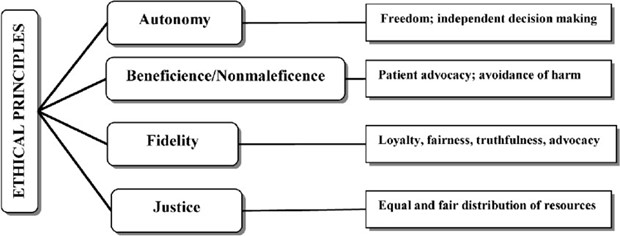A nurse is preparing to change the dressing on the lower leg of an older adult client who is in a wheelchair, and has a history of maladaptive coping skills. The client begins swearing at and verbally abusing the nurse. Which of the following actions should the nurse take?
Explain to the client why her behavior is inappropriate.
Tell the client when he will return and leave the room.
Place wrist restraints on the client to prevent psychomotor agitation.
Move the client to a seclusion room.
The Correct Answer is B
By calmly informing the client when the nurse will return and then leaving the room, the nurse establishes clear boundaries and removes themselves from the situation to ensure their own safety. It allows the nurse to disengage from the abusive behavior and avoid escalating the situation further.
Let's review the other options and explain why they are not appropriate in this situation:
A. Explaining to the client why their behavior is inappropriate may not be effective in the moment when the client is already agitated and verbally abusive. Attempting to reason with or educate the client during this state could potentially escalate the situation or prolong the abusive behavior.
C. Placing wrist restraints on the client should only be done in exceptional circumstances when there is an imminent risk of harm to themselves or others. Verbal abuse, while unpleasant, does not necessarily warrant the use of restraints as a first-line intervention.
D. Moving the client to a seclusion room is also an extreme measure and should only be considered if the client's behavior poses a significant risk to themselves or others and less restrictive interventions have been exhausted. Verbal abuse alone would not typically warrant seclusion.
Nursing Test Bank
Naxlex Comprehensive Predictor Exams
Related Questions
Correct Answer is C
Explanation
This response acknowledges the client's subjective experience and validates their belief that the bracelet provides pain relief. It shows empathy and respect for the client's perspective without dismissing or challenging their belief.
Let's review the other options and explain why they are not the most appropriate responses:
A. "Why do you think the copper helps with your arthritis?" This response may come across as questioning or doubting the client's belief, which can be invalidating and may hinder the
nurse-client relationship.
B. "I think you should rely more on your medication therapy than on your bracelet." While it is important to emphasize evidence-based medical treatments, this response may be perceived as dismissive or confrontational. It is essential to maintain a supportive and collaborative approach.
D. "Believing objects have powers to make you feel better has no scientific basis." Although this statement is true in terms of scientific evidence, it may undermine the client's beliefs and create a sense of defensiveness or disagreement. It is more effective to maintain a respectful and non-judgmental attitude.
Correct Answer is D
Explanation
Autonomy is the ethical principle that upholds an individual's right to make decisions about their own care and treatment. Respecting autonomy means acknowledging and honoring a person's right to make choices based on their own values, beliefs, and preferences. By importing a client's wishes to refuse prescribed treatments, the nurse is recognizing and respecting the client's autonomy. This shows that the nurse values the client's right to make decisions about their own healthcare and supports their choice, even if it may differ from what the nurse may recommend.
Incorrect:
A. Spending extra time to calm an agitated client demonstrates the ethical principle of beneficence, which is the duty to promote the well-being and welfare of the client.
B. Ensuring that a client understands expectations for group participation relates to the ethical principle of fidelity, which involves maintaining trust and keeping promises to the client.
C. Describing the adverse effects of a client's medications is important for informed consent and promoting understanding, but it does not directly involve the client's autonomy unless it is accompanied by a discussion of the client's choices and preferences regarding medication.

Whether you are a student looking to ace your exams or a practicing nurse seeking to enhance your expertise , our nursing education contents will empower you with the confidence and competence to make a difference in the lives of patients and become a respected leader in the healthcare field.
Visit Naxlex, invest in your future and unlock endless possibilities with our unparalleled nursing education contents today
Report Wrong Answer on the Current Question
Do you disagree with the answer? If yes, what is your expected answer? Explain.
Kindly be descriptive with the issue you are facing.
